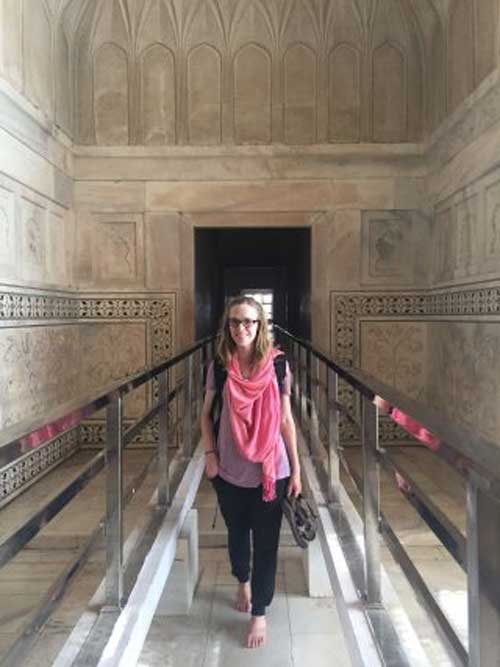Bowen student spends summer researching rural health curriculum for girls in India
A William H. Bowen School of Law student at the University of Arkansas at Little Rock spent her summer researching and updating a curriculum which teaches girls in India about gender equality, reproductive health, and other health issues.
Natalie Ramm, a concurrent student at Bowen and the Clinton School of Public Service, recently completed her International Public Service Project with the Comprehensive Rural Health Project in Jamkhed, Maharashtra, India.
What was your Public Service Project, and what did it entail?
I spent eight weeks on a research project for the Comprehensive Rural Health Project in Jamkhed, Maharashtra, India. The organization wanted to update the curriculum for its Adolescent Girls Program. This program teaches girls about gender equality, reproductive health, karate, self-defense, environment and sanitation, and other important topics.
I surveyed 25 girls who have been part of the course in recent years and two instructors to find out how they thought the program could be changed and improved. I used the results from the survey to guide my secondary data research and updated the curriculum for the program.
Describe an average workday.
In the first couple of weeks, I visited villages to survey girls and instructors. In the week following, I analyzed data from the surveys and created graphs and charts. Afterward, I spent a few hours every day researching new topics to add to the program and new activities and information to add to the existing topics. I also spent time with the current instructor going over all of the material I added to the curriculum to make sure it would translate into the cultural context.
What were the best professional lessons learned from this experience?
I perfected the ability to manage my time without much oversight from a supervisor. I also learned how important it is to have others review your work, especially when working in a different country. Many things just do not translate and working with someone from India to make sure the curriculum made sense to her meant that it would make sense to the girls, and that the updates would actually make a difference.
How did you spend your free time away from work?
I spent my free time reading for fun and watching Bollywood movies.
What effect, if any, did this experience have on your career pursuits?
I choose this project because it was focused on education and, specifically, teaching young women about reproductive health and gender equality. This experience has taught me the importance of communication and cultural awareness when advocating for or discussing sensitive issues like reproductive health. These are skills that will help me in my future work in reproductive justice in the United States.
This article was written by Patrick Newton of the Clinton School of Public Service.
